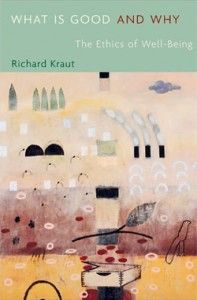Kindness and Twitter

Kind Me
One of the neatest online articles I've read all year: Good Times: What's the use in being kind? A host of benefits, it turns out. I read two highly-interesting asides ("There's an entire blog devoted to former readers of Jezebel.com who were shouted off the comments for not maintaining their very particular brand of womanhood" and "It creates a warped worldview, as you can see in reading some pro-anorexia Web sites. (Or better yet, don't. You probably don't have the stomach for them.)").
I also found a strong exoneration of Aristotelian thinking about virtue: It's good to do good; it's good to be good. Such fundamentals shouldn't need exoneration, of course, but in a world of pop philosophy dominated by Hobbes (life is brutish), Schopenhauer (everything sucks, except islands of fleeting pleasure), Kant (if it's a virtue, it must be unpleasant), and Nietzsche (I will, therefore I am), everyone these days seems reared to have such a warped mindset. Maybe that's changing:
Adam Phillips and Barbara Taylor argue that another problem is how we confuse what might give us a cheap hit of pleasure – sex, a bout of righteous anger – with what really does bring us long-term enjoyment and other benefits: kindness. Long relegated to those virtues that seem about as appealing as eating cardboard for the fiber, they argue that being kind creates social bonds, benefits the surrounding world, and, yes, is enjoyable in and of itself. Even believing that humans are hardwired for kindness – and not that competition rules all – could affect everything from simple interactions to national policy on eldercare and the health system.
They write in On Kindness that while it's always been a philosophical quandary as to whether man's nature was genuinely kind or selfish, the cynics won out and convinced us that kindness is the clothing civilization forces us to wear, and that deep down we are all wild beasts. Instead of being the cooperative generous beings that primatologists and anthropologists have suggested we are, the argument goes, we need religion and laws to keep us from slicing each other open on a regular basis. Kindness, then, was relegated to your Christian duty, to be done as an item on a checklist.

Post deleted. Rushed "journalism." Comments below allude to my mistake.
Jon Stewart is America's most-trusted newscaster, which is noteworthy for a few reasons: I didn't think he qualified as a newscaster; he's heavily biased to the left (though he was very courteous and complimentary of libertarian Republican Peter Schiff) and "trustworthy" implies some level of objectivity; he's frequently grossly unfair with his montages, which are often designed more to elicit laughs than to inform. Oh well, just one more sign of the Idiocracy we're descending into. Then again, maybe it's a good sign that people don't seem to trust the network anchors, who aren't only unfair and non-objective, but more damningly, grossly un-humorous.
I can't decide if this is alarming or boring: What are the odds that your next restaurant meal will be prepared by someone on drugs? Very high. An ex-chef and former addict on why cooks and coke go together like salt and pepper.



